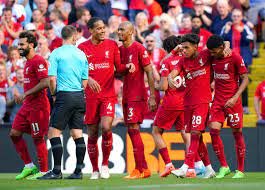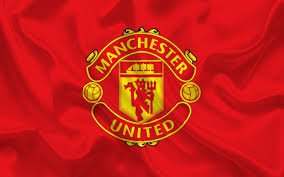In the high-stakes world of elite football, clubs like Liverpool FC, Real Madrid FC, and Manchester City FC aren’t just sports teams; they’re powerful global brands with distinct business management styles that drive their commercial successes. While each team excels on the pitch, their off-the-field approaches reveal deep-rooted differences in managing revenue streams, fan engagement, sponsorships, and even philosophies on football development. This analysis delves into the contrasting organizational styles of these football giants, highlighting how each club’s business strategy shapes their identity and fuels their pursuit of athletic excellence.
Liverpool FC: Tradition and Sustainable Growth
Liverpool FC is well-known for its deep-rooted heritage and strong global fanbase. Under Fenway Sports Group’s (FSG) ownership, the club has embraced a strategy that balances tradition with sustainable business practices. FSG has a long-term focus on generating growth while retaining Liverpool’s historic identity, avoiding rapid financial gambles or overreliance on player transfers for revenue.
- Revenue Model: Liverpool’s business model emphasizes a balanced mix of matchday revenue, broadcasting rights, and commercial partnerships. The club has forged strategic partnerships with iconic brands, such as Standard Chartered, while expanding its global reach through official merchandise and digital engagement. Digital transformation initiatives have allowed Liverpool to connect with its massive international fanbase, providing tailored content and virtual experiences.
- Fan-Centric Engagement: Liverpool capitalizes on its fan loyalty by offering a close-knit experience, reflecting the club’s working-class roots. The “You’ll Never Walk Alone” mantra symbolizes this bond, which has been a powerful marketing and branding tool. Recently, Liverpool has invested in digital fan engagement, producing unique content for platforms like YouTube and Instagram that showcase behind-the-scenes player interactions and live match updates.
- Investment in Infrastructure: FSG has shown prudence in investing in infrastructure, such as expanding Anfield Stadium rather than building an entirely new arena. This approach helps retain the historic essence of Liverpool FC while accommodating more fans, ultimately boosting matchday revenue.
Real Madrid FC: Galácticos and Global Prestige
Real Madrid FC, synonymous with grandeur and the “Galácticos” philosophy, has long pursued a strategy of signing superstar players. This approach has brought both critical acclaim and immense commercial value, allowing the club to leverage players as global ambassadors who attract sponsorships, media attention, and merchandise sales worldwide.
- Branding and Global Presence: Real Madrid’s commercial strategy focuses heavily on branding as a luxury football brand. By signing players like Cristiano Ronaldo and David Beckham, the club positioned itself as the home of world-class talent. This reputation drives merchandise sales and sponsorships, particularly from companies seeking to associate themselves with a premium brand.
- Commercial Revenue: Real Madrid earns significant revenue from merchandising, licensing deals, and partnerships with companies like Adidas, Emirates, and Audi. The club has continually led the way in capitalizing on its brand, especially in international markets such as Asia and the Americas. Real Madrid has also been proactive in securing broadcasting rights, ensuring substantial revenue from televised matches.
- Diversified Ventures: The club’s diversified revenue streams extend beyond football. Real Madrid offers a variety of brand extensions, including a Real Madrid-themed resort and an exclusive club membership program, giving fans worldwide a taste of the “Galácticos” lifestyle.
- Emphasis on Legacy and Global Outreach: Unlike Liverpool, which focuses on tradition, Real Madrid blends historical prestige with aggressive marketing. The club actively seeks to cement its legacy through initiatives like its official membership program, making fans feel part of a larger international community.
Manchester City FC: Innovation and Data-Driven Management
Manchester City, backed by the Abu Dhabi United Group since 2008, has undergone a rapid transformation. The club’s modern approach centers on innovation, analytics, and leveraging financial resources to build a holistic football ecosystem.
- Investment in Technology and Analytics: Unlike Liverpool’s focus on heritage and Real Madrid’s on prestige, Manchester City prioritizes technology and data-driven strategies. The club uses advanced analytics to shape everything from player recruitment to match strategies. This data-centric approach has allowed Manchester City to achieve consistent results on the field, despite being one of the newer names in elite football.
- Global Franchise Model: Through the City Football Group (CFG), Manchester City operates as part of a global network of clubs. CFG owns or has stakes in multiple clubs across continents, creating a worldwide scouting and talent pipeline. This structure enables Manchester City to develop players and expand its brand across emerging markets in the United States, Australia, and Japan.
- Commercial Partnerships and Revenue Streams: Manchester City’s financial resources allow it to secure high-value sponsorships. For instance, partnerships with Etihad Airways and Puma support the club’s expansive budget while aligning it with brands that resonate globally. Manchester City’s strategy also involves partnerships in the digital space, including an exclusive deal with Amazon Prime for the documentary series All or Nothing, which showcased the club’s internal operations.
- Fan Experience and Community Engagement: Manchester City has transformed its stadium experience by incorporating technology, such as mobile ticketing, digital upgrades, and augmented reality experiences. City Football Academy, a state-of-the-art training facility, exemplifies the club’s commitment to integrating community engagement with elite training.
Key Differences in Organizational and Commercial Strategies
- Fan Engagement and Legacy: Liverpool’s fan-focused and tradition-oriented strategy contrasts with Real Madrid’s high-profile superstar model and Manchester City’s tech-driven, community-based approach. Each club tailors its business management to reflect its unique brand identity, with Liverpool emphasizing community, Real Madrid prioritizing prestige, and Manchester City focusing on innovation.
- Revenue and Sponsorship Models: Real Madrid leads in global sponsorship and merchandise sales, driven by its reputation as a luxury brand. Manchester City relies on a strong sponsorship network within the CFG framework, and Liverpool focuses on balanced growth and strategic partnerships that align with its traditional values.
- Player Development and Global Reach: Manchester City’s global franchise model sets it apart, as the CFG structure allows it to scout and develop talent worldwide, enhancing its football ecosystem. Liverpool’s and Real Madrid’s focus remains more centralized, with Liverpool relying on its academy and Real Madrid continuing to target high-profile acquisitions for immediate impact.
- Digital Transformation and Innovation: While all three clubs have embraced digital transformation to some extent, Manchester City has led the way in using data analytics and fan engagement technologies. Liverpool’s digital strategy emphasizes storytelling and community, while Real Madrid leverages social media to enhance its premium brand experience.
Liverpool FC, Real Madrid FC, and Manchester City FC each reflect the unique identities of their respective management styles in both sport and commerce. Liverpool’s tradition, Real Madrid’s luxury brand, and Manchester City’s innovative approach offer varied blueprints for success in the competitive world of football. While each club’s strategy differs, their common thread lies in continuously adapting their business models to secure success both on and off the field. For fans and analysts alike, these three giants provide insights into how varied organizational philosophies can thrive in modern sports business management.


























































